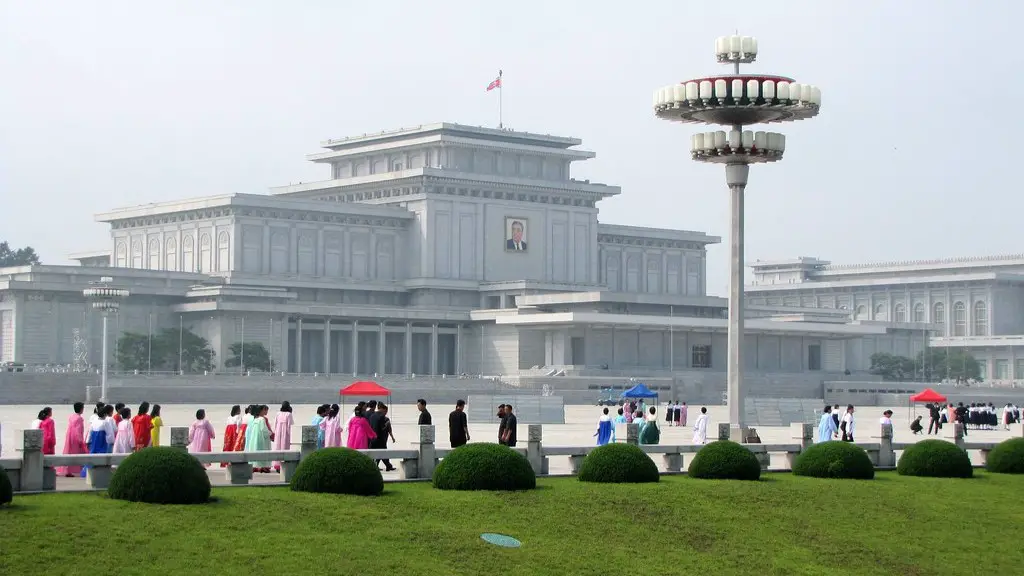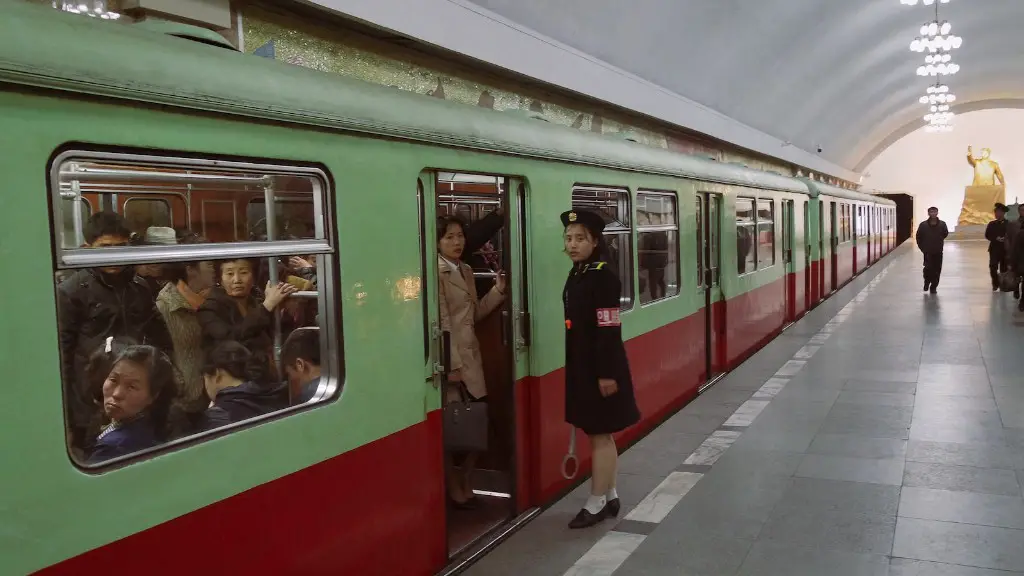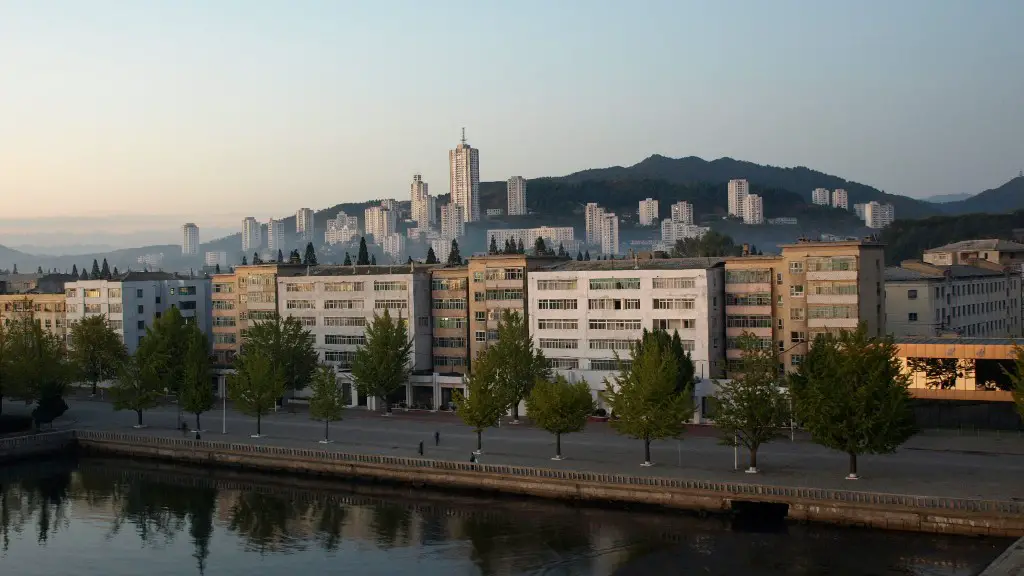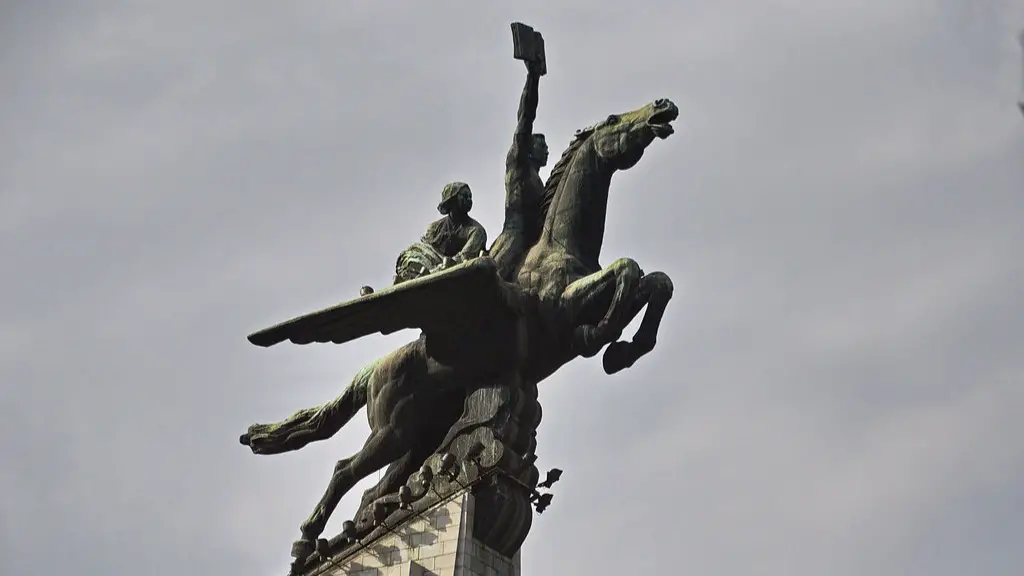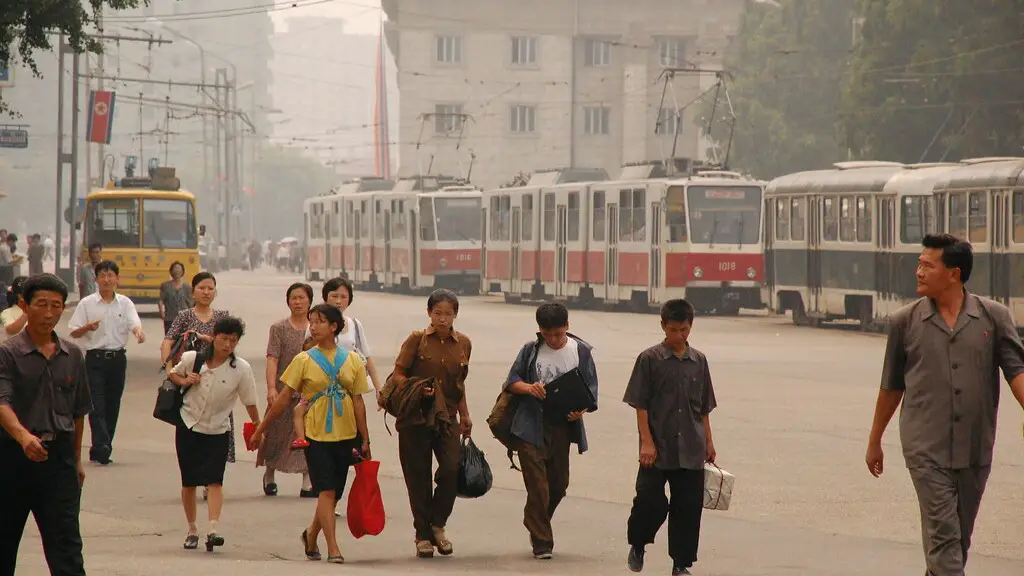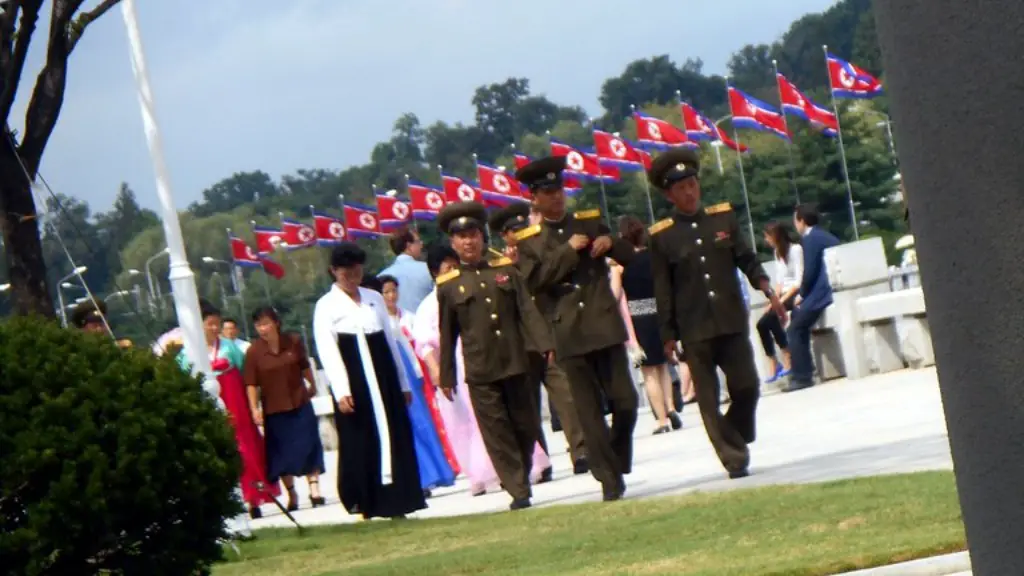What Type Of Goverment Does North Korea Have
North Korea is a classic example of one of the world’s most isolated yet powerful nations. The isolated Communist state of North Korea has been ruled by an iron-fisted dictatorship since its establishment in 1948. The government of North Korea is composed of a supreme leader, the Workers’ Party of Korea (WPK), the state apparatus, and its security forces. North Korea’s government is often referred to as a totalitarian dictatorship due to its absolute rule and control over the population. It is a one-party system under the control of the WPK and its leader, the supreme leader. North Korea follows the Juche ideology, which emphasizes independence and self-reliance.
The supreme leader of North Korea is Kim Jong Un. He is the chairman of the WPK, head of the state, and supreme commander of the armed forces. The WPK is the sole governing party in North Korea, and thus holds great political power. The WPK has a formal organization with several executive organs. Its main tasks are establishing the laws governing the state, carrying out the implementation of policies, and directing the activities of the state.
The state apparatus is one of the more visible aspects of the North Korean government and involves the state structures that operate under the WPK. There are various departments that handle various aspects of government. These ministries are run by top officials appointed by the supreme leader. For example, the Ministry of Foreign Affairs conducts negotiations with foreign countries for the North Korean government.
The North Korean security forces include the police, military, secret police, and other organizations. These forces are responsible for the enforcement of the laws of the state and keeping the population in check. It has been suggested that the security forces are also used to suppress dissent, ensure loyalty to the state, and maintain control over the population. The security forces are some of the most powerful and influential institutions in North Korea.
The North Korean government has been criticized by many in the international community for its lack of transparency and human rights abuses. The government has been accused of maintaining a system of political oppression and controlling the media and access to information. Furthermore, its military activities and nuclear tests have caused tension with its neighbours and the international community. In spite of this, the North Korean government remains in power and seems to have little motivation to change its practices.
What Are The Major Ideologies Of North Korea?
The ideology of North Korea is closely tied to its governing structure. The official ideology is known as Juche, which is a North Korean interpretation of Marxism-Leninism. The main idea behind Juche is that North Korea must be self-sufficient, rejecting any foreign influence or influence from outside the party apparatus. It also proclaims loyalty to a single leader and absolute obedience to him.
According to Juche ideology, North Koreans are expected to be dedicated to the leader and the nation. It is also closely tied to the worship of the supreme leader and his family, which has been in power since 1948. North Koreans are expected to show loyalty to the state through their behavior, as well as through their thoughts. This is encouraged by the promotion of songs, movies, and even textbooks that emphasize the importance of loyalty to the state.
Juche is closely linked with the cult of personality associated with the Supreme Leader and his family. This involves numerous posters and public displays of loyalty to the Supreme Leader, as well as censorship of any material not following the government’s official line. The government also encourages citizens to take part in regular political education classes, which focus on the ideology of the state.
How Does The North Korean Government Enforce Its Ideology?
The North Korean government uses a variety of tactics to ensure that its ideology is followed. Speech and behavior codes are imposed, ranging from requiring expressions of loyalty to the state and its leader to the ban on certain types of dress and hairstyles. Media, such as television and radio, are censored and tightly regulated, and access to the Internet or foreign news sources is strictly prohibited.
North Koreans are regularly monitored by the security forces, which investigate any perceived disloyalty. Those who are deemed to be unacceptably disloyal are often publicly reprimanded or even arrested. In some cases, they are sent to labor camps or even executed. This serves as a powerful tool of control over the population.
In addition, North Koreans are encouraged to report any suspicious behavior to the authorities. This creates a feeling of paranoia and discourages citizens from expressing any dissent or critical views. This can lead to a climate of fear and self-censorship among citizens.
How Does The International Community Respond To North Korea’s Government?
The international community has been vocal in its criticism of North Korea’s government. The UN has imposed numerous sanctions on the country because of its nuclear program and other activities. The US, for instance, has imposed tough sanctions on North Korea, including a ban on exports and restrictions on banking. Other countries, including the EU and South Korea have also imposed sanctions in response to North Korea’s human rights abuses.
The criticism of North Korea extends beyond sanctions. International voices have called for the country to improve its human rights practices. The government has been accused of widespread abuses, including torture, forced labor, and censorship. Furthermore, the government has been criticized for its refusal to allow international monitoring of its practices.
In spite of this criticism, the government of North Korea remains in power. The state still maintains a tight grip on its citizens, and dissent is still heavily repressed. It is only with international pressure and advocacy that real change can be achieved.
What Political Reforms Have Been Made By North Korea’s Government?
In recent years, North Korea has implemented a number of political reforms. Most notably, the government has relaxed restrictions on foreign travel and has opened the country to more international investment and trade. In addition, there have been changes in the structure of the government, including the appointment of more women to government positions.
These reforms, however, have come with a caveat. They are not seen as genuine efforts to improve the human rights situation in the country. Instead, they are seen as efforts to improve the way the international community sees the country and to attract more aid and investment.
In spite of these reforms, there is still no sign of real political reform in North Korea. The government still exercises absolute control over its citizens and shows little regard for their rights. While some degree of political openness may have been achieved, it does little to change the nature of the North Korean government.
What Is The Future Of North Korea’s Government?
Given its current status, the future of North Korea’s government is uncertain. Despite the reform efforts, the government still exercises absolute control over citizens and appears unwilling to change its authoritarian practices. There is also no indication that the North Korean economy will be able to sustain itself in the long term.
The future of North Korea and its government depends on how the international community responds. The world has rightly condemned North Korea’s human rights abuses, but in order to facilitate change, more needs to be done. International pressure and advocacy must be sustained if real reform is to be achieved.
What Are The Implications Of North Korea’s Government For The International Community?
The government of North Korea has serious implications for the international community. Its nuclear program and military activities pose a threat to the region and beyond. This is why international pressure and sanctions have been imposed on North Korea.
In addition, North Korea’s human rights abuses have come under sharp criticism from the international community. The country’s lack of democracy and freedom of speech has been widely condemned, as have its treatment of political prisoners and other citizens. The international community also has a responsibility to ensure that North Koreans are treated with respect and dignity.
The government of North Korea is a source of continued concern for the international community. Its human rights abuses and military activities must be addressed. International pressure, advocacy, and dialogue must be used to encourage North Korea to move towards more reform and openness, while ensuring that its citizens are treated with respect and dignity.
